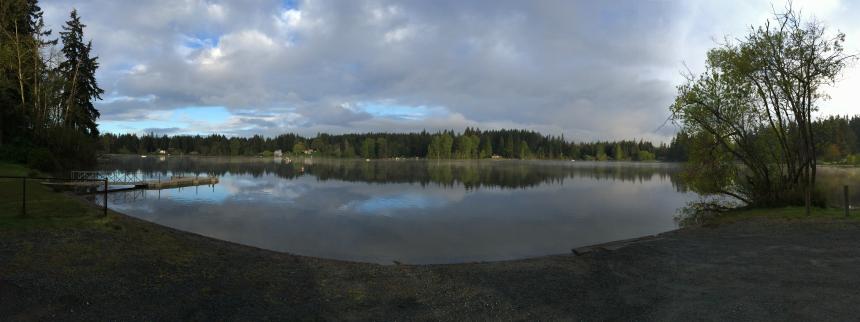2025 Trout Derby
11 prizes are waiting to be claimed!
Prizes already claimed here:- $50 GIFT CARD @ OAK HARBOR BIG 5
- $50 gift card @ OAK HARBOR ACE HARDWARE
- $100 gift card @ SEBO'S DO IT CENTER WHIDBEY ISLAND
- $100 gift card @ SEBO'S DO IT CENTER WHIDBEY ISLAND
- $100 gift card @ SEBO'S DO IT CENTER WHIDBEY ISLAND
- $100 gift card @ SEBO'S DO IT CENTER WHIDBEY ISLAND
- $100 gift card @ SEBO'S DO IT CENTER WHIDBEY ISLAND
- $25 gift card @OAK HARBOR WALMART
- $25 gift card @OAK HARBOR WALMART
- $25 gift card @OAK HARBOR WALMART
Catch a tagged fish? Fill out the
prize claim form.
Forget where to collect your prize? Recover your prize details.
One mile west of Clinton on Whidbey Island. Trout fishing is good to very good for stocked Rainbow Trout and Coatsal Cutthroat Trout ranging from 13 to 15 inches. Quality-size Largemouth Bass are also present.
This lake is one of only two waters in Island County managed with a seasonal fishing closure. Spring catch rates for trout are highest early in the season and decline as fish are harvested and as warmer water temperatures force trout to seek areas of colder refuge. Fall is often overlooked by anglers, but can be an ideal time as fish that have been growing all summer become more active around the lake with cooler temperatures.
Deer Lake has a WDFW access on the northeast corner of the lake with a gravel boat ramp and parking area.
Two-pole fishing is allowed
Shoreline access: Good - Lake developed, access at WDFW boat ramp.
Species you might catch
Lake information
County: Island
Acreage: 81.70 ac.
Elevation: 356 ft.
Center: 47.974244, -122.384032
Open in Google Maps
Catchable fish plants
| Stock Date | Species | Number Released | Number of Fish Per Pound | Facility |
|---|---|---|---|---|
Visit the Catchable Trout Plants page for a more detailed search of trout plants in this or other bodies of water. To view or download the source data for this table visit the WDFW Fish Plants dataset on the Washington State Open Data Portal
Fishing prospects calendar
Rainbow trout
Coastal cutthroat trout (resident)
Largemouth bass
Photos
